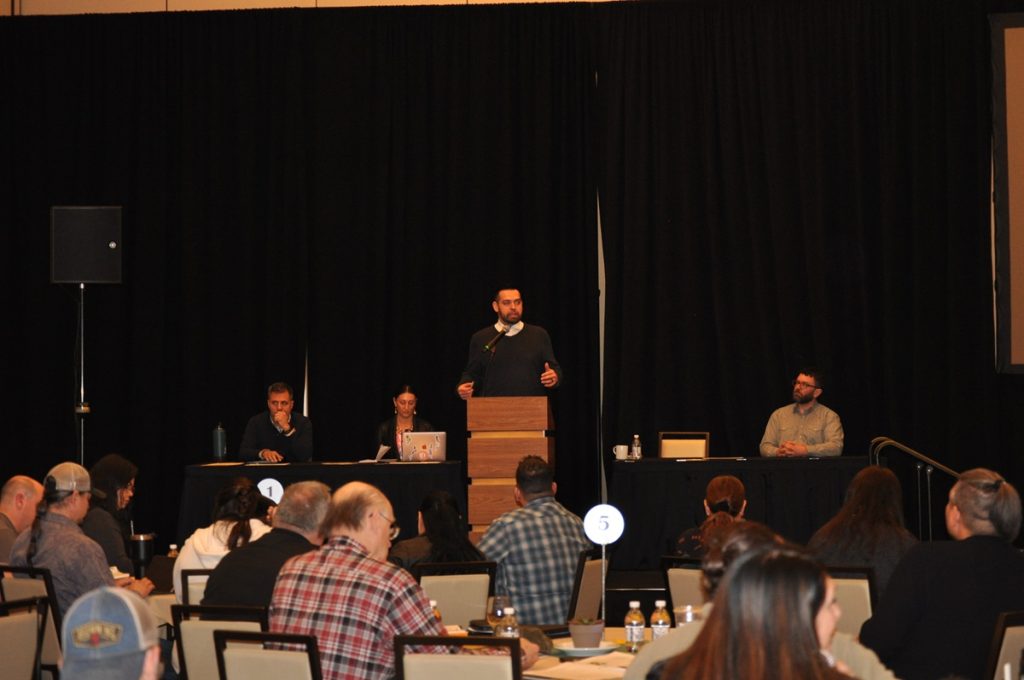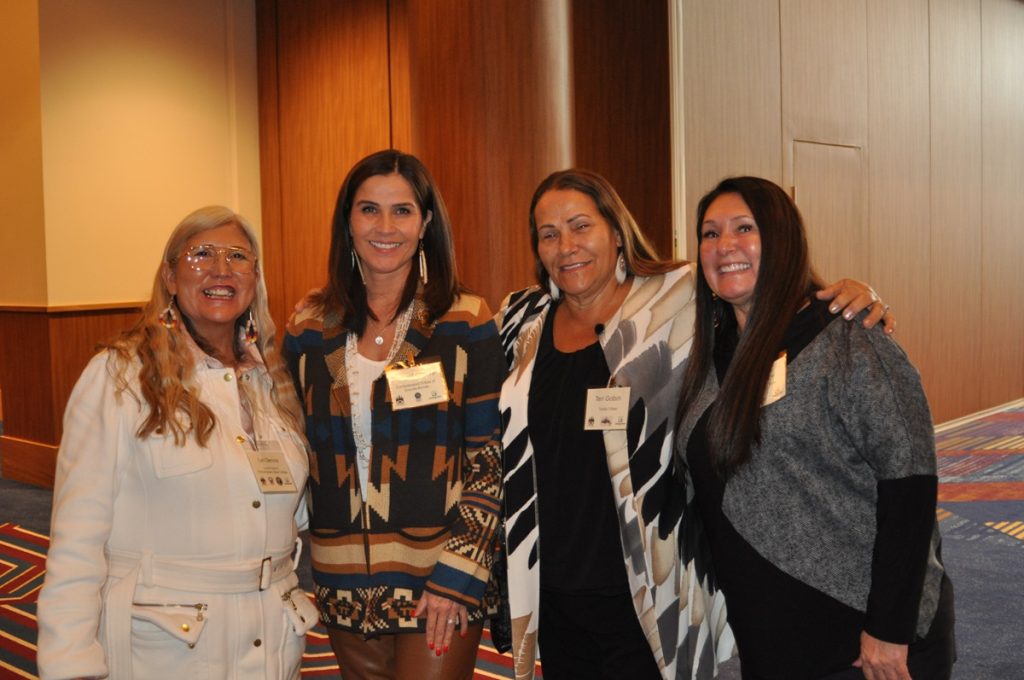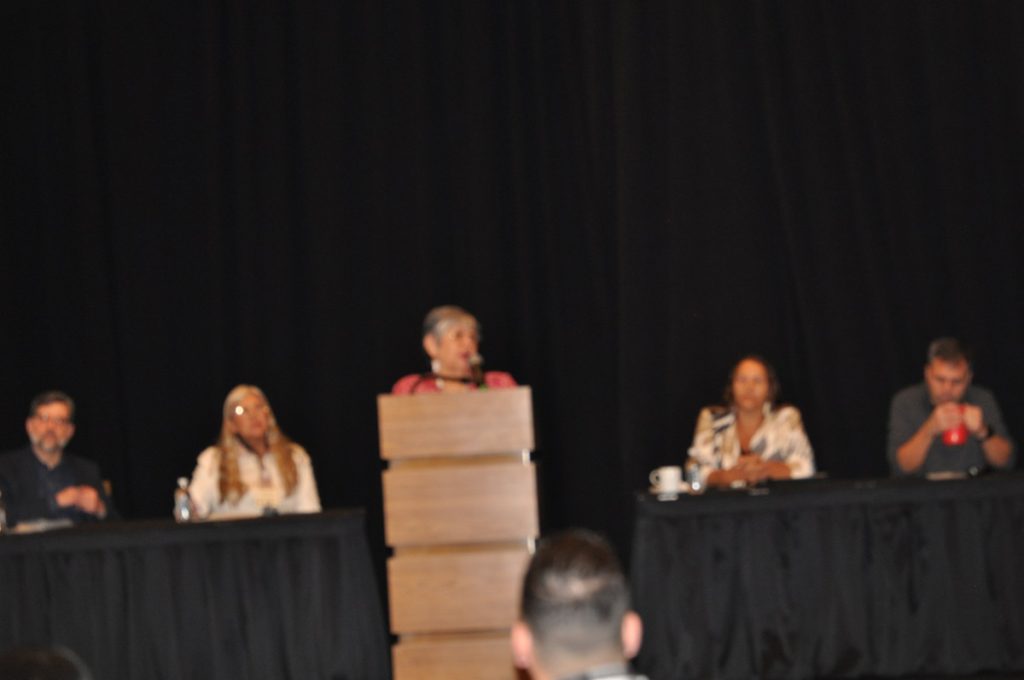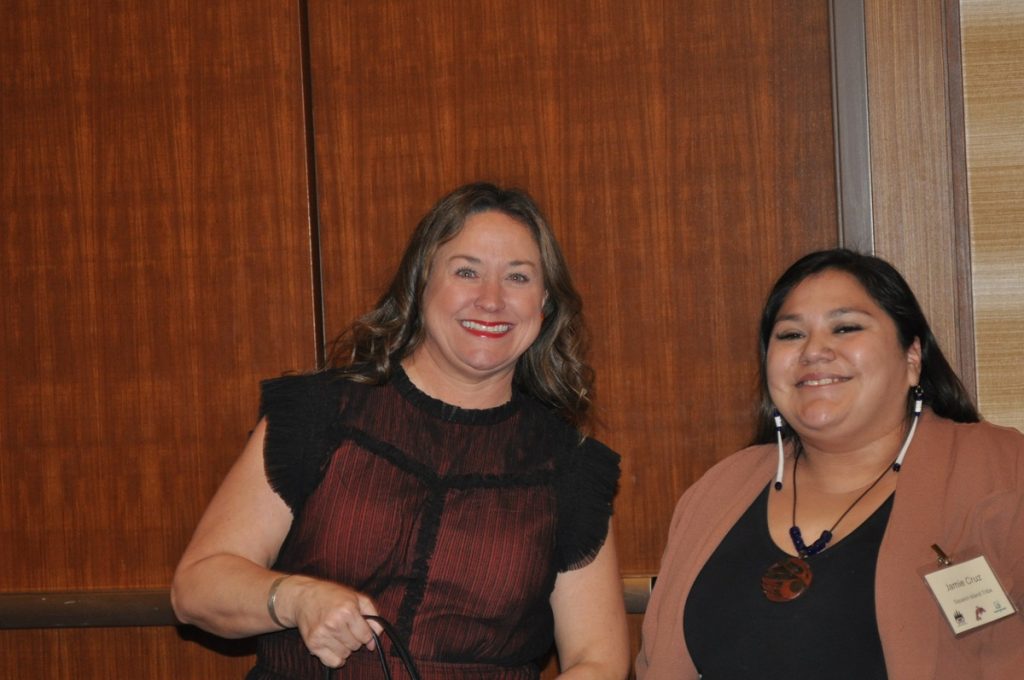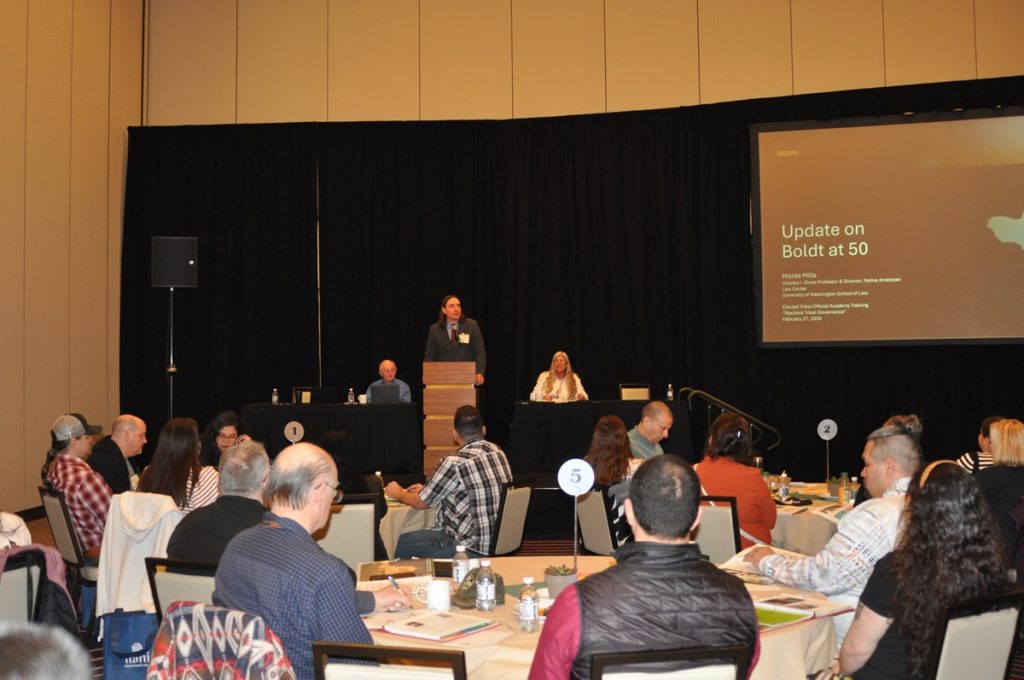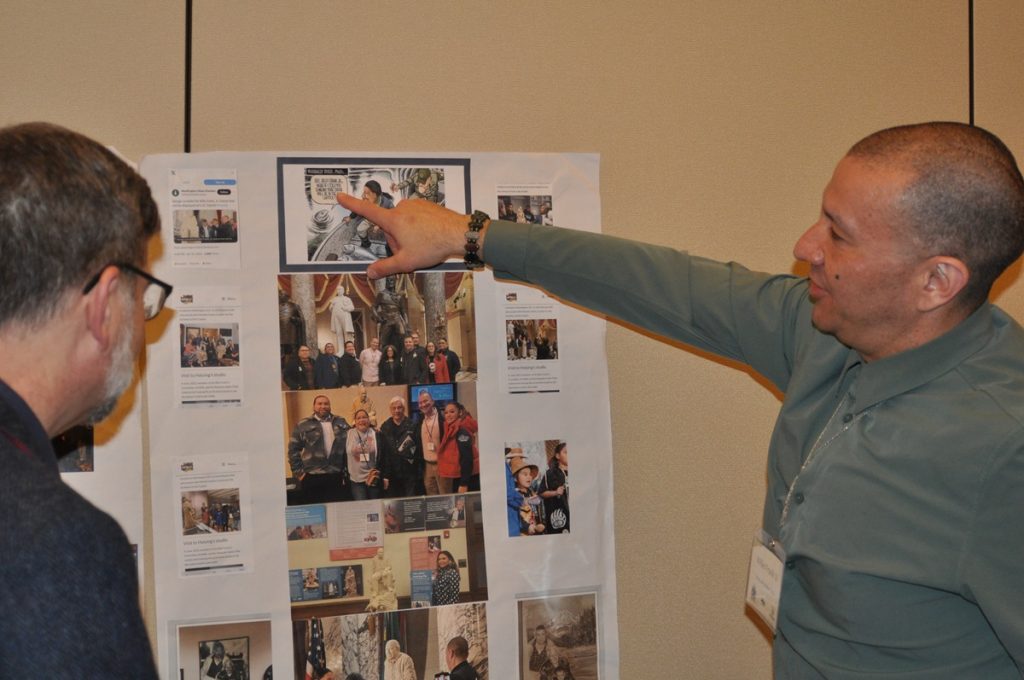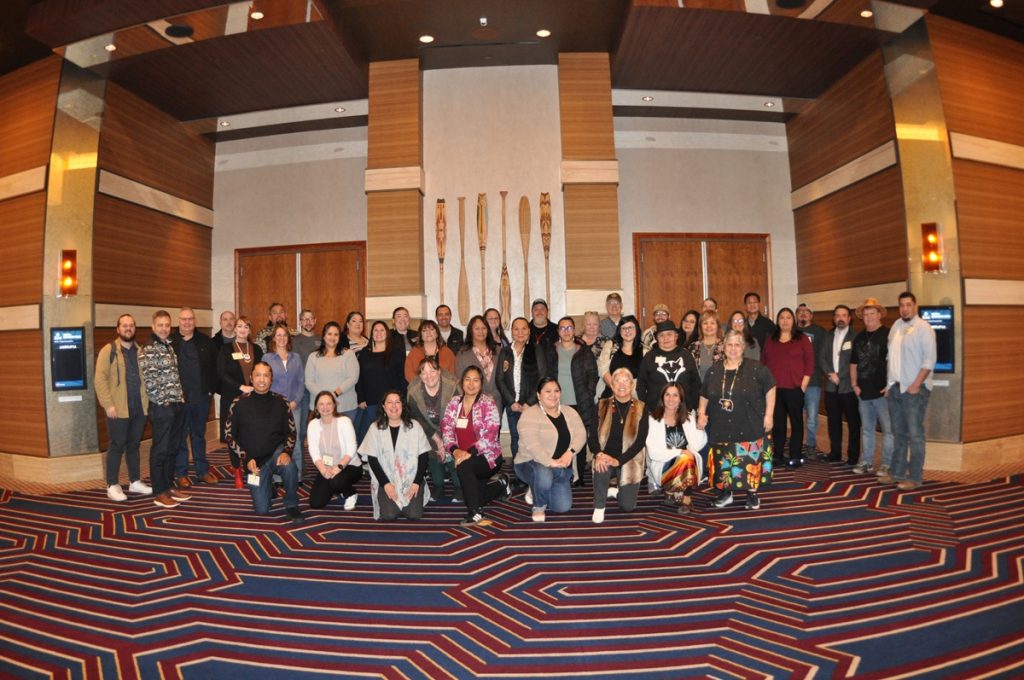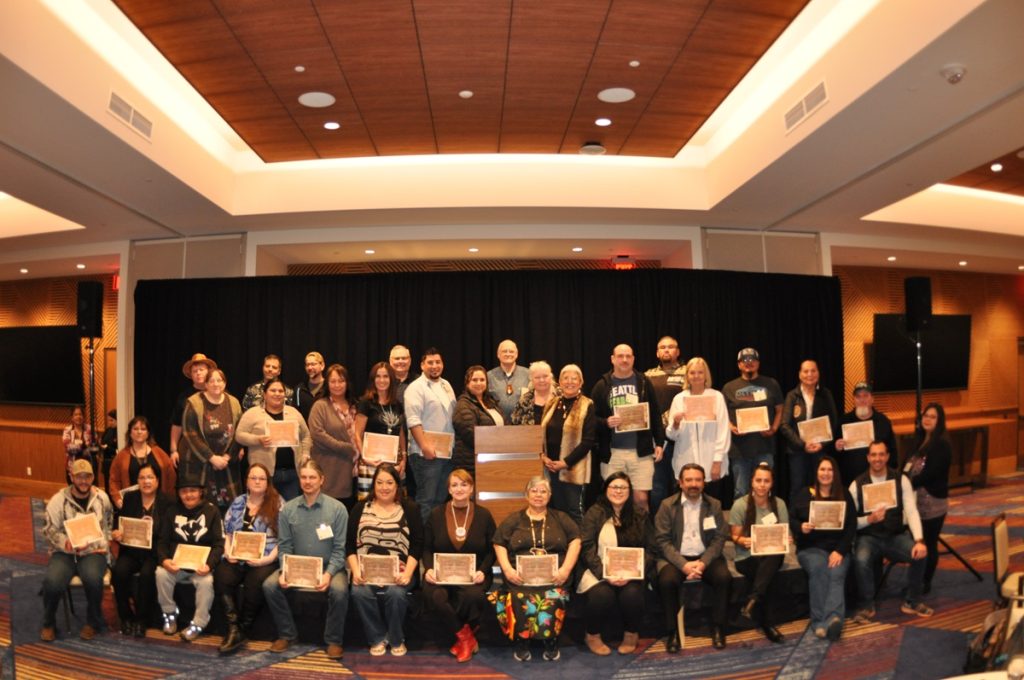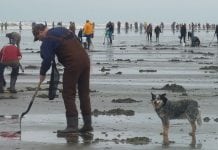Submitted by Lyn Dennis, Tribal Liaison, The Evergreen State College
Submitted by Lyn Dennis, Tribal Liaison, The Evergreen State College
The Second Annual Elected Tribal Official Academy Training took place February 27-29, 2024, at the gorgeous ilani Casino Resort in Ridgefield, Washington, and hosted by the Cowlitz Tribe. The tribes represented included Squaxin Island; Nisqually; Lummi Nation; Confederated Tribes of Colville; Confederated Tribes of Umatilla; Spokane; Hoh; Port Gamble S’Klallam; Tulalip Tribes; Jamestown S’Klallam; Confederated Tribes of Grand Ronde; Skokomish; and the Cowlitz Tribe.
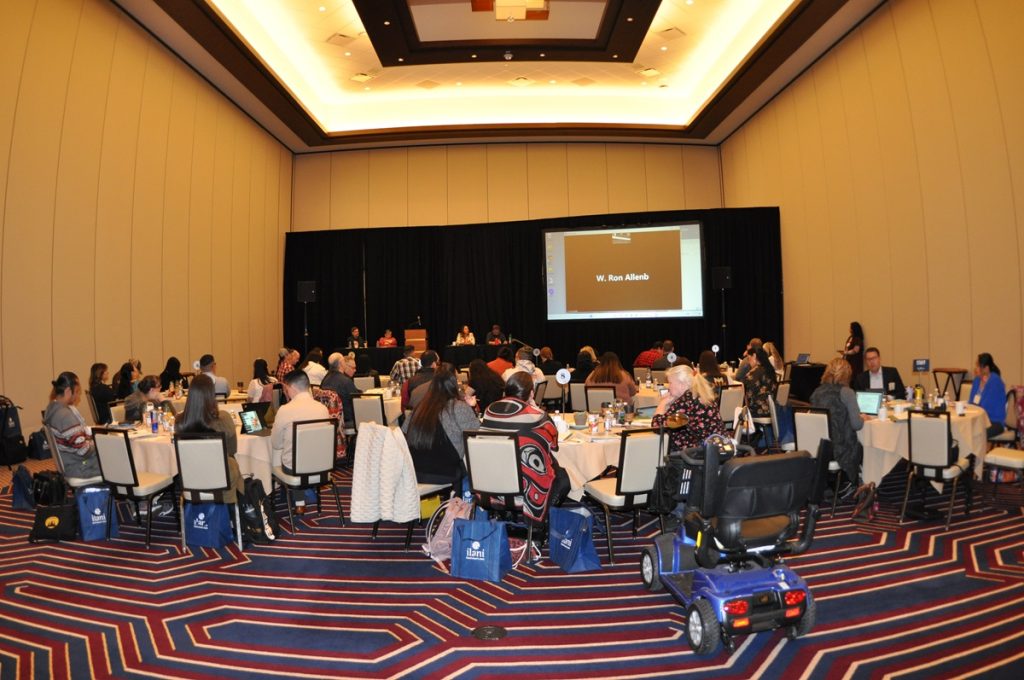
Cowlitz Tribal Chairwoman Patty Kinswa-Gaiser provided a welcome along with opening remarks by The Evergreen State College President John Carmichael, and all the attendees introduced themselves.
“Resilient Tribal Governance” is highlighted throughout the training, including such topics as “Boldt at 50,” an “Update on the Supreme Court,” a “Legislative Update on the 118th Congress,” an “Overview of the Bureau of Indian Affairs,” “Communication and Political Protocols,” “Tribal Budgets and Fiscal Policy,” “Climate Change,” “Legislative Process on the State and Federal Level,” “Gaming and Sustainable Tribal Economies.”
This training is a result of a consultation that previously took place at The Evergreen State College, in which tribes requested a training for newly elected tribal officials and tribal liaisons. We have developed curriculums for both trainings.
We are led by a Steering Committee including: Jamestown S’Klallam Tribal Chairman Ron Allen; Senior Lummi Indian Business Council Member Henry Cagey; Tulalip Tribes Chairwoman Teri Gobin; and Squaxin Island Tribal Chairman Kris Peters, who also serves on The Evergreen State College Board of Trustees. This year, they decided to open up the registration to tribal staff who are approved by their tribal councils.
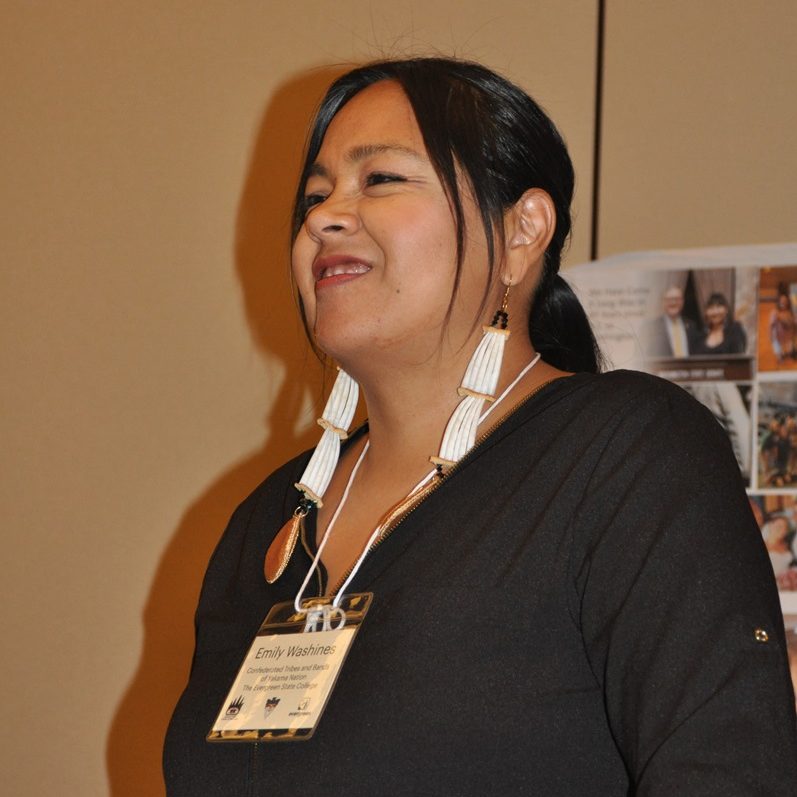
Chairwoman Gobin said: “One of the most important aspects of this training is the networking and sharing practices and information with each other. This was very beneficial for new and seasoned council and staff members.”
Chairman Allen said: “We’re coming together to address the leadership challenges. Over the last 20, 30, 40 years the tribes have grown and that means more demands on our tribal councils. We start finding our leadership resources being stretched.”
During opening remarks, Chairman Peters said, “You’re doing this so you can serve your people better.” He also moderated the panel on the Legislative Process on the State and Federal Level and the Roles of a Tribal Lobbyist. Chairman Peters said, “It’s important to have a lobbyist that will work for you.”
There is a reception for the tribal leaders and tribal liaisons with the intent to establish and build relationships. There were approximately 75 who attended this reception, and over 25 state agencies were represented, such as the Department of Transportation; Department of Revenue; Washington State Patrol; Office of Equity; NOAA Fisheries, U.S. Department of Commerce; Office of Native Education, Office of Superintendent of Public Instruction; Office of Financial Management; Washington State Liquor and Cannabis Board; Department of Children, Youth and Families; State Auditor’s Office; the Office of State Treasurer, among other state agencies.
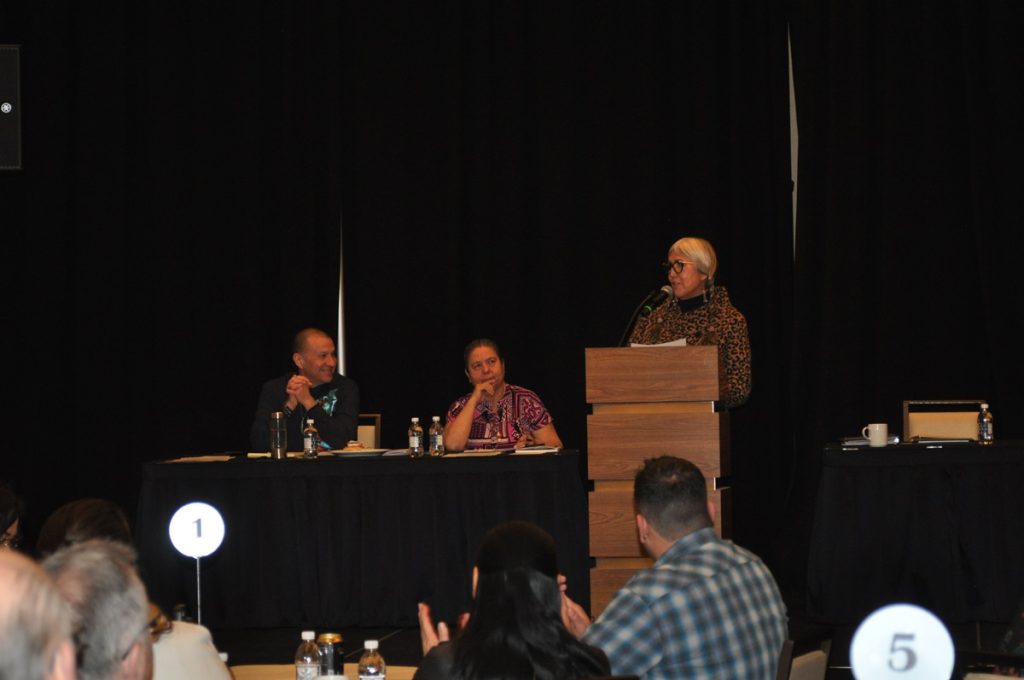
Lyn Dennis, Tribal Liaison, said: “We are excited to be able to offer both of the trainings that the Tribes requested. We will ensure a positive future for ALL Our Tribal People and the communities.”
We offer an “Advanced Tribal Relations Certificate Program,” which began the fall quarter of 2023 and will be completed in the spring of 2024. This program is designed for current and aspiring tribal liaisons and other positions that interact directly with the tribes.
Participants will improve their abilities to collaborate with tribal leadership and their understanding of current and historical policies that impact tribal-governmental relations. This hybrid certificate includes online group learning with an instructor and guest speakers, along with three site visits to tribes near the Olympic area. During the fall quarter, the class toured the Squaxin Island Tribe, and led by Chairman Kris Peters; the winter quarter, the class toured the Chehalis Tribe, and they will be touring the Skokomish Tribe in spring quarter. A number of tribal liaisons from this course attended the reception at the ilani Casino Resort.
Lower Elwha S’Klallam Tribal Chairwoman Frances Charles and Nisqually Chairman Willie Frank III shared their views on their duties as an elected tribal official. Chairwoman Frances Charles said: “I go back and look at minutes of previous councils.” Her presentation included a chronology of the Lower Elwha S’Klallam people. Chairman Willie Frank III’s presentation included fishing rights and tribal sovereignty. He said, “The language is our foundation at Nisqually.” Willie Frank Sr. had numerous recordings that have today been translated and transcribed.
The elected tribal officials were divided into seven workgroups to help them network and discuss priorities. Some of the information they shared was the details or assignments. They also shared their understanding, experience, issues, and goals. After discussion, they drafted an Action Memo to help formalize their next steps. The priorities ranged from Elder Housing, Economic Development, Health and Human Services, Treaty Rights, Natural Resources, Law and Order, and Drug Trafficking and Addiction.
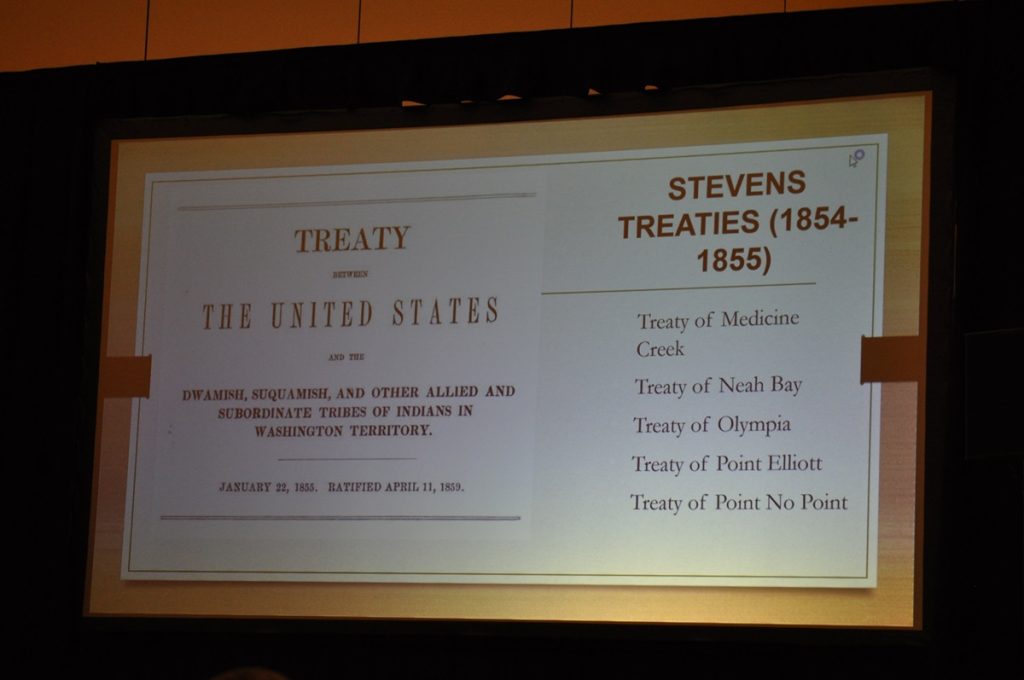
During the training, Emily Washines of the Yakama Nation and Facilitator, received a beautiful pair of earrings from Cowlitz Tribal Council Member, Suzanne Donaldson, because Emily’s family dip netted smelt in the Cowlitz River and gifted the catch to the Cowlitz Tribe for ceremonial purposes. Since the Cowlitz Tribe received federal recognition, they do not have fishing or hunting rights. The Yakama Nation has the right to fish in the Cowlitz River.
Port Gamble S’Klallam Tribal Chairwoman Amber Caldera posted on her Facebook “I just got back from an incredible three-day training by The Evergreen State College. I love trainings that leave you feeling inspired and motivated for the future. It covered a range of topics, including updates from the Supreme Court, insights from speakers representing the Bureau of Indian Affairs, protocols for political visits to Washington, D.C., budgeting and financial management, tribal economics, climate changes, the legislative process, and effective lobbying strategies.
However, the highlight for me was engaging with the experienced tribal elected officials, especially the Chairwomen, whose wisdom and experience leaves me inspired. I am very thankful for these ‘Strong’ women, who paved the way and went through many hardships back when women in leadership was even less common then it is now. It was so nice to share amazing meals together, getting to know some of the tribal leaders better. A shoutout to the Washington Indian Gaming Association for the fantastic dinner and to the host tribe – Cowlitz’s ilani Casino Resort was gorgeous! We had amazing food and accommodations.”
Vice-Chairman of the Shoalwater Bay, Shawn Thompson said, “Be the change you wish to see in the world. Its’s from my auntie’s quote from all the hard work she has done for her tribe in emergency management and her amazing vision to get the nation’s first vertical evacuation tower.”
Grand Ronde Tribal Councilmember Michael Cherry said: “Attending the Elected Tribal Official Academy Training was a transformative experience that provided invaluable insights and opportunities to collaborate with other elected officials. The training offered a unique opportunity for both new and seasoned elected tribal leaders to gain a deeper understanding of tribal governance and tribal sovereignty essential to our communities. I cannot emphasize enough how effective this training was, I only wish I attended sooner.!”
Elected Tribal Official Academy Graduates
Kimber “Kim” Appelt – Cowlitz Tribe
Louis Auld – Skokomish Tribe
Steve Barnett – Cowlitz Tribe
Cheryl Bell – Cowlitz Tribe
Amber Caldera – Port Gamble S’Klallam Tribe
Justine Capra – Nisqually Tribe
Steven Carson – Confederated Tribes of Colville
Michael Cherry – Confederated Tribes of Grand Ronde
Karen Condon – Confederated Tribes of Colville
Pat Contraro – Tulalip Tribes
Carson Cooper – Tulalip Tribes
Jaimie Cruz – Squaxin Island Tribe
Samuel Davis – Tulalip Tribes
Kris Dillehey – Cowlitz Tribe
Suzanne Donaldson – Cowlitz Tribe
Laura Enick – Tulalip Tribes
Teri Gobin – Tulalip Tribes
Travis Grady – Cowlitz Tribe
Steven Hart – Confederated Tribes of Umatilla
Anthony Hillaire – Lummi Nation
Darlene Hollum – Hoh Tribe
Nathan Hootan – Cowlitz Tribe
Tahnee Hudson – Hoh Tribe
Kevin Jones – Tulalip Tribes
Larry Kestner – Cowlitz Tribe
Maureen Kinley – Lummi Nation
Patty Kinswa-Gaiser – Cowlitz Tribe
Michelle Lawrence – Cowlitz Tribe
Maria Lopez – Hoh Tribe
Rochelle Lubbers – Tulalip Tribes
Rylee Marchand – Tulalip Tribes
Sophia Pinon – Squaxin Island Tribe
Bernard R. After Buffalo Jr. – Hoh Tribe
James Rima – Spokane Tribe
Vanessa Robertson – Cowlitz Tribe
Maverick Ryan – Cowlitz Tribe
Cynthia Sheriff – Hoh Tribe
Gayle Singleton – Cowlitz Tribe
Annette “Nut” Smith – Skokomish Tribe
Antoinette Squally – Nisqually Tribe
Chris Sutter – Tulalip Tribes
Shane Thomas – Shoalwater Bay Tribe
Santana Thompson-Sheldon – Tulalip Tribes
Robin Torner – Cowlitz Tribe
Patrick Tonasket – Confederated Tribes of Colville
Josie Ward – Hoh Tribe
Sharlene Zacherly – Confederated Tribes of Colville
A special thanks to the Washington Indian Gaming Association including Rebecca George, Executive Director; Rosina DePoe, Deputy Director; and Linda Edwards, Administrator, who helped tremendously at the training including registration and facilitating. We would also like to thank Denny Hurtado, Skokomish Tribe, who photographed the entire training.
If you have any questions, please contact Lyn Dennis, Tribal Liaison, The Evergreen State College at lyn.dennis@evergreen.edu or cell: 360 819-7028. And we look forward to an even better training in 2025!
Sponsored
